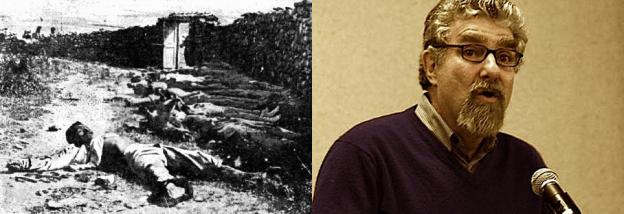LISTEN TO THE SHOW
When Gregory Djanikian’s book, So I Will Till the Ground, was published in 2007, it was celebrated at the Kelly Writers House. (Later a Writers House podcast was released to give a sense of the event.) Al Filreis gave an introduction (MP3) as did one of Djanikian’s students, Sam Donsky (MP3). Djanikian read the hilarious “Immigrant Picnic” (MP3), a poem from the part of the book dealing with the life of the poet's family after the genocide left many of his forebears dead and dispersed the rest to places like Alexandria, Egypt, where our poet was born. Most of the book, indeed, deals with the effects many decades later of the Armenian genocide (or “Meds Yeghern,” the great calamity). But the first poems in So I Will Till attempt to represent mass killing. Among them is a poem Djanikian also read that night in 2007: “Armenian Pastoral” (MP3), the poem we discuss in this episode of PoemTalk. It is more focused on the linguistic capacities of traumatic memory than any other poem in a book that is nonetheless full of consciousness about the relationship between genocide and naming.
It is more focused on the linguistic capacities of traumatic memory than any other poem in a book that is nonetheless full of consciousness about the relationship between genocide and naming.


